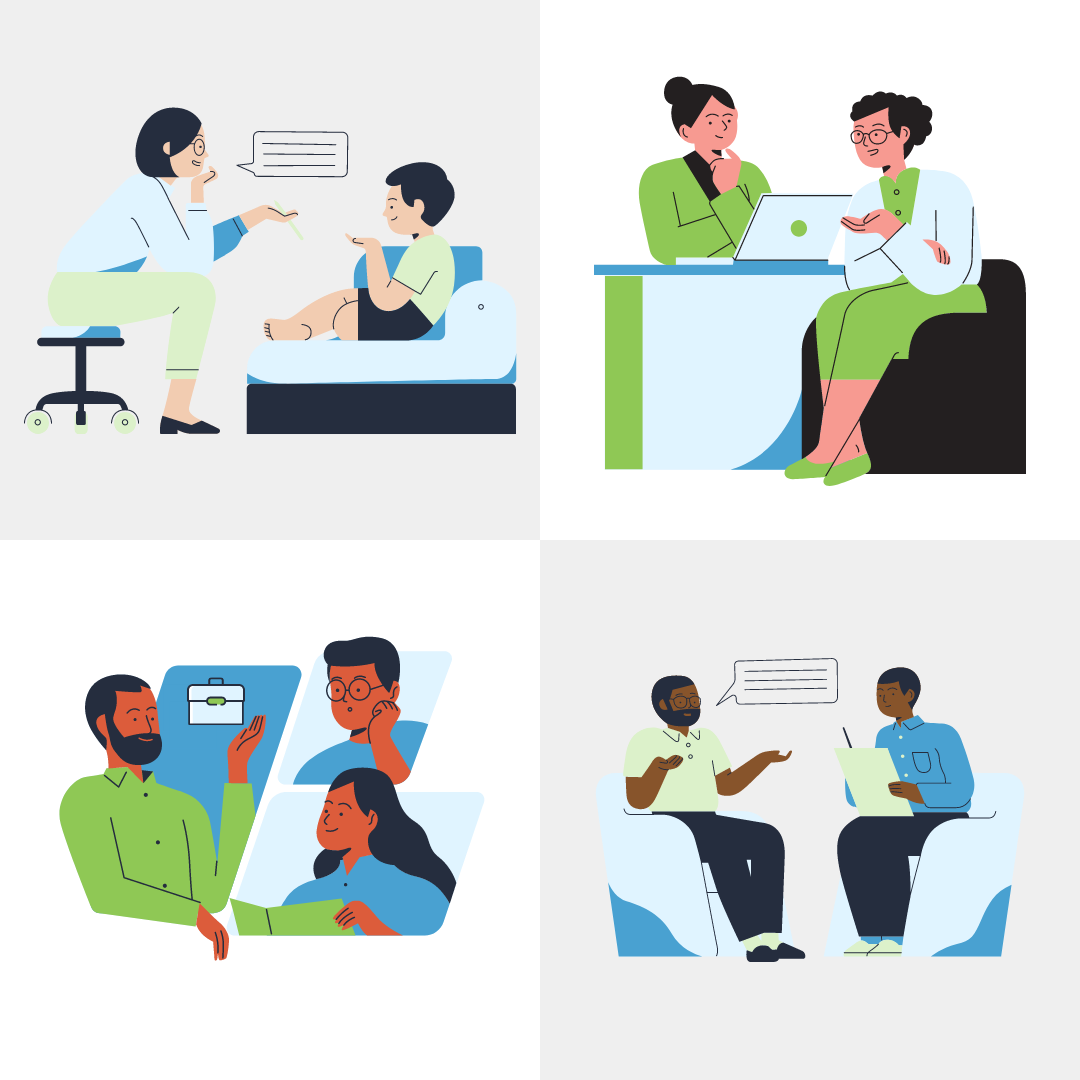2 Legal Ethical CE Credit Hour Self Study for Clinicial Staff in a Group Practice Context
Privacy Ethics and HIPAA Fundamentals for Mental Health Professionals in the Agency or Group Practice Context
Join Roy Huggins LPC NCC and Liath Dalton as they address foundational HIPAA practices specifically for clinicians in a group practice setting.
2 legal ethical CE credit hours
On Demand Self Study
It’s about mindset
In this presentation, you’ll learn the foundational aspects of HIPAA that every clinician in a group practice needs to know, without the fear and overwhelm that typically is associated with HIPAA trainings.
Who is this event for?
This course is designed for group practice clinical staff members. It is also suitable for practices that consist of 100% in-person, 100% telehealth, or a mixture of in-person and telehealth treatment.
 In-person Practices
In-person Practices
 Hybrid Practices
Hybrid Practices
 Teletherapy Only Practices
Teletherapy Only Practices

I’ve been watching several of your CE programs and, while I’ve always been impressed with your services, I just have to say, your programs are excellently done with production and content and simultaneously warm and accessible. I really appreciate what you do!
Getting Into the Security Mindset
Describe how HIPAA’s security and privacy rules apply to a clinician in a mental/behavioral health practice.
Foundational HIPAA Training
Describe technical security standards as they apply to a clinician’s role in a mental/behavioral health practice.
Common behaviors to avoid
Engage, from the clinician’s perspective, with the practice’s policies & procedures around security risk mitigation and contingency planning.
Training is Step 2 of the PCT Way.
Course Details
2 CE Credit Hour. Self Study
Title: Privacy Ethics and HIPAA Fundamentals for Mental Health Professionals in the Agency or Group Practice Context
Authors/Presenters: Roy Huggins, LPC NCC; Liath Dalton
CE Length: 2 CE credit hours, legal-ethical
Legal-Ethical CE Hours: 2 legal-ethical CE hour
Educational Objectives:
- Describe how HIPAA’s security and privacy rules apply to a clinician in a mental/behavioral health practice.
- Describe technical security standards as they apply to a clinician’s role in a mental/behavioral health practice.
- Engage, from the clinician’s perspective, with the practice’s policies & procedures around security risk mitigation and contingency planning.
Syllabus:
- Getting Into the Security Mindset
- The relationship between professional mental health ethics and security
- Understanding HIPAA at the introductory level
- Confidentiality and availability in both HIPAA and professional ethical standards
- Common behaviors to avoid
- HIPAA and Client Privacy
- What constitutes Protected Health Information (PHI)?
- Permitted and required disclosures and releases of PHI
- Communication with coordinating clinicians outside the practice
- Using the Practice’s Tech in the Clinician Role
- Maintaining the practice’s “circle of secure information”
- Following and Supporting Bring Your Own Device Policies
- Using the practice’s records and communications setup securely
- Understanding the Collaborative Risk Analysis for Client Communication
- Participating in the Practices’ Risk Management Activity
- Understanding Security Policies and Procedures
- Supporting Office Safety
- Supporting Contingency Plans
Meet Our Presenters
Presented by:
Roy Huggins LPC NCC

Roy Huggins, LPC NCC, is a counselor in private practice who also directs Person-Centered Tech. Roy worked as a professional Web developer for 7 years before changing paths and makes it his mission to grow clinicians’ understanding of the Internet and other electronic communications mediums for the future of our practices and our professions.
Roy is an adjunct instructor at the Portland State University Counseling program where he teaches Ethics and is a member of the Zur Institute advisory board. He has acted as a subject matter expert on HIPAA, security, and clinical use of technology for Counseling licensure boards, and both state and national mental health professional organizations. He has co-authored or authored 2 book chapters, and he routinely consults with mental health colleagues on ethical and practical issues surrounding tech in clinical practice. He served for 5 years on the board of the Oregon Mental Health Counselors Association and then the Oregon Counseling Association as the Technology Committee Chair.
He really likes this stuff.

Liath Dalton is PCT’s deputy director and a co-owner. Liath is especially passionate about helping therapists be resourced and supported in navigating the security compliance process and identifying the solutions and processes that meet the particular needs of their practices. Liath’s consultation area of expertise is focused on selecting the right combination of services and tech that not only meet the legal-ethical needs of mental health practices, but also the functionality, efficiency, and cost-effectiveness needs as well.
Resources & Citations
- American Association of Marriage and Family Therapists. (2015). Code of Ethics . Alexandria, VA: Author.
- American Counseling Association. (2014). ACA Code of Ethics. Alexandria, VA: Author.
- American Psychological Association. (2010). American Psychological Association Ethical Principles of Psychologists and Code of Conduct . Washington, DC: Author.
- National Association of Social Workers. (2017). Code of Ethics . Washington, DC: Author.
- National Board for Certified Counselors. (2012). Code of Ethics . Greensboro, NC: Author.
- US Dept. of Health and Human Services. (2006). HIPAA Administrative Simplification . Washington, DC: Author.
- US Dept. of Health and Human Services. (2013). HIPAA Omnibus Final Rule . Washington, DC: Author.
Accuracy, Utility, and Risks Statement: The contents of this program are based primarily on publications from the federal Department of Health and Human Services, and on the ethics codes of these professional organizations: AAMFT, ACA, APA, NASW, NBCC. Contents are also guided by statements from leadership in those organizations. Some interpretation and analysis presented is made by the presenter, in consultation with knowledgeable colleagues and expert consultants. Statements about applications to technology are according to presenter’s understanding of the technology at the time of the program. The presenter may not know how to apply all principles discussed to every technology type or product. This program discusses strategies for complying with HIPAA and covered ethics codes, and for improving security. It may not include information on all applicable state laws. Misapplication of the materials, or errors in the materials, could result in security problems, data breaches, or non-compliance with applicable laws or ethics codes.
Conflicts of Interest: None
Commercial Support: None
